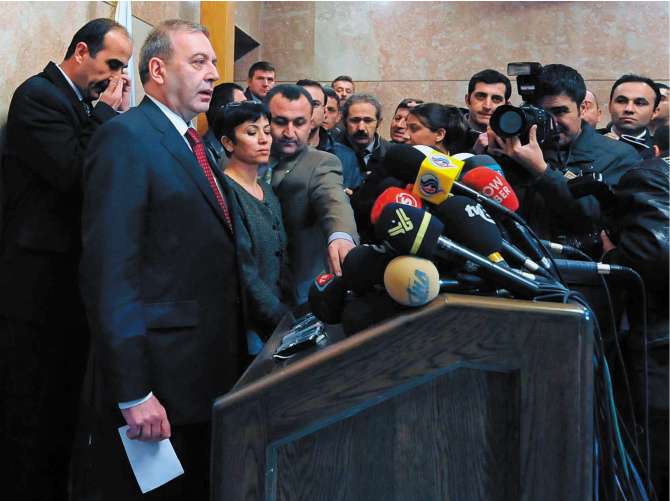Turkey's ruling party to stand trial for being 'too religious'

Your support helps us to tell the story
From reproductive rights to climate change to Big Tech, The Independent is on the ground when the story is developing. Whether it's investigating the financials of Elon Musk's pro-Trump PAC or producing our latest documentary, 'The A Word', which shines a light on the American women fighting for reproductive rights, we know how important it is to parse out the facts from the messaging.
At such a critical moment in US history, we need reporters on the ground. Your donation allows us to keep sending journalists to speak to both sides of the story.
The Independent is trusted by Americans across the entire political spectrum. And unlike many other quality news outlets, we choose not to lock Americans out of our reporting and analysis with paywalls. We believe quality journalism should be available to everyone, paid for by those who can afford it.
Your support makes all the difference.Turkey's highest court has voted to hear a case to close down the country's ruling party, in a move that looks set to open the bitterest bout yet in a 50-year war pitting popularly-elected governments against the secular establishment.
The Constitutional Court's unanimous decision comes a fortnight after a prosecutor charged the ruling Justice and Development Party (AKP) with trying to turn Turkey into a country that "takes religion as its reference" and demanded political bans on the prime minister Recep Tayyip Erdogan and the president Abdullah Gül.
The offshoot of an Islamist party closed down by courts in 1998, the conservative AKP has a month to prepare its defence. With the closure case likely to last at least six months, many fear it will now have neither the time nor the inclination for reforms aimed at strengthening the country's still-flawed democracy and economy.
Senior European figures pointedly warned Turkey over the weekend that outlawing AKP could jeopardise the country's struggling European Union accession bid. A few days earlier, Turkish business leaders called for compromise to avoid even deeper political turmoil. But with some analysts describing the current tensions as the end of Turkey's Cold War, the signs are that both sides may be preparing to fight to the end.
The indictment on 14 March was just the latest attempt by secularists to trip up a party that came to power in 2002 and was re-elected with 47 per cent of the vote last summer. There were two foiled coup attempts in 2004, and a veiled threat of military intervention last year.
Judicial investigations into a secularist-nationalist gang charged with "provoking armed rebellion against the government" picked up speed last week with the arrest of a prominent secularist journalist and the leader of a left-wing party. The gang is alleged to have had a role in the murder of a High Court judge in 2006 that triggered a secularist backlash culminating in last spring's massive demonstrations against the AKP.
For all his fondness for comparing the pious Turks who make up his party's core supporters to "America's blacks", Mr Erdogan is no Martin Luther King.
Speaking a day after the indictment, he called it a "move against the national will", and – apparently alluding to the prosecutor – cited a Koranic verse that compares unbelievers to "beasts".
"There is hatred in Erdogan's eyes these days", said Cuneyt Ulsever, an analyst who knows the prime minister personally. "He seems to be out for revenge."
Most analysts argue that, barring an unlikely compromise with uncompromising secularists, the only path that the AKP can now take is to prove the emptiness of the prosecutor's case in court.
But senior figures in the government appear convinced the court will rule against them regardless of their defence.
With the future of their party – and, in many ways more importantly, their charismatic leader – in doubt, they appear to be mulling plans to change the constitution to make it more difficult to close parties down.
Analysts say the move is legally dubious and politically very dangerous. Failure to get enough votes in parliament could tempt the government to take the constitutional amendment to a referendum, and that would risk being interpreted as a referendum on secularism.
"I do not think this country would be able to carry that sort of tension", said the political analyst Cengiz Aktar, giving voice to a fear in many Turks' minds these days.
"A referendum could spark a real coup d'etat, not just the judicial one we've been presented with today."
Join our commenting forum
Join thought-provoking conversations, follow other Independent readers and see their replies
Comments